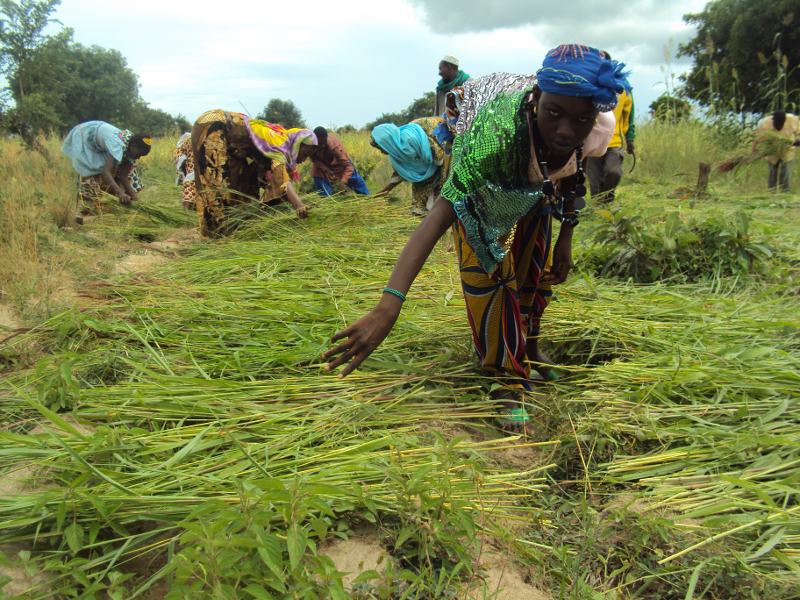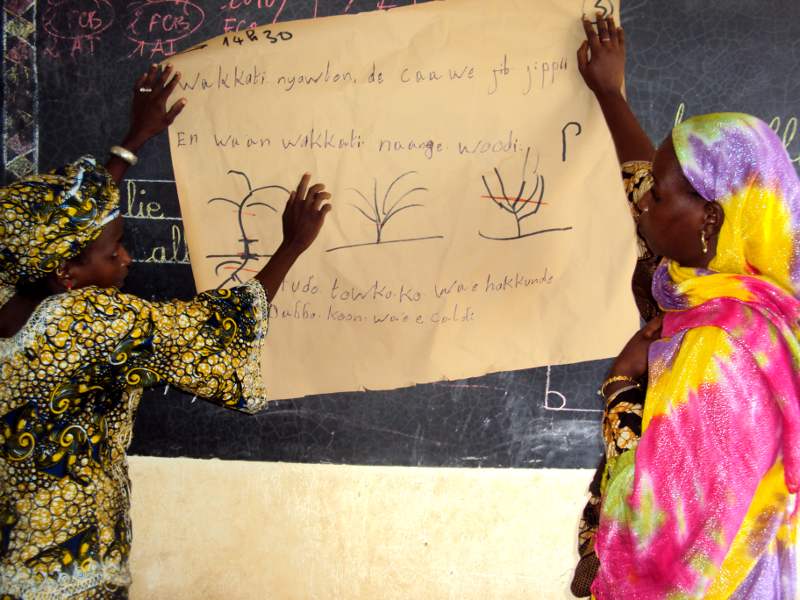I did not know that I would be seeing Fulani herders stock fodder in my lifetime
Today the National Union of Mini-Dairies and Local Milk Producers covers 26 mini-dairies. All are faced with one major problem: during the dry season, especially from February, herders no longer have any milk to sell. The small quantity available is consumed by the family. What can be done to increase milk production and make sure that dairies have milk to process all year round?
 In order to solve this problem the Fulani women who deliver fresh milk to the dairies of the Union, notably from the villages of Lena, Sondré-Est, Pa and Taloma, asked for support from the PASMEP (an assistance programme for herders in Burkina).
In order to solve this problem the Fulani women who deliver fresh milk to the dairies of the Union, notably from the villages of Lena, Sondré-Est, Pa and Taloma, asked for support from the PASMEP (an assistance programme for herders in Burkina).
This resulted in the organisation of a training programme in September and October 2010, offering a choice of courses in harvesting, drying and storing fodder. The Fulani women, in particular, took part with enthusiasm. They were able to learn to select the best fodder plants (including grasses and leguminous plants). They were not afraid of then grabbing a sickle and cutting large quantities of fodder plants. The harvested plants were left in the sun for some time and when they were sufficiently dry they were tied up in bundles of 10-12 kg.
Given that one bundle will provide sufficient food for one dairy cow for two days, each participant was asked to calculate the number of bundles required to feed those dairy cows of their herd which would not be migrating to other land, but were to remain in the village to provide milk for the dairy. Feeding two cows from the beginning of February to the end of June requires 150 bundles. They have to be stored sheltered from the animals, the sun and the rain as well (in May and June).

 This is quite a lot of work! All participants were not able to supply all the necessary feed as of the first year. But I believe that a start has been made and that from now on, more and more Fulani people (the women in particular, because they are in charge of selling the milk to earn an income for their families) will start to put animal feed in storage every year. I feel like saying:” Yet another change under way.”
This is quite a lot of work! All participants were not able to supply all the necessary feed as of the first year. But I believe that a start has been made and that from now on, more and more Fulani people (the women in particular, because they are in charge of selling the milk to earn an income for their families) will start to put animal feed in storage every year. I feel like saying:” Yet another change under way.”
Indeed, many changes have taken place since the end of the 70ies, when I spent several winter months at Loroni in the north east of Burkina studying the local language. At the time the Fulani were not themselves cultivating, but they paid young villagers to come and work on their fields. The young folks worked on their parents’ land all morning and then, around 2 p.m., they went over to the Fulani to work theirs and earn some money.

The 2010 experience is promising. But it is only a start. The time has come to multiply this kind of experiment, which does not require big investments, but a serious preparation. That traditional Fulani herders are now harvesting and storing animal fodder is evidence of a profound change of heart, which would not come about without a thorough learning process. My farmer friend expressed this very well when he said to me:
”I did not know that I would be seeing Fulani people put fodder for their cattle in storage in my life-time !”
Koudougou, July 21, 2011
Maurice Oudet
Director SEDELAN










